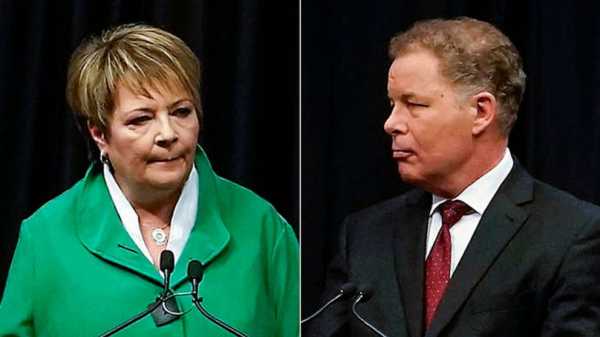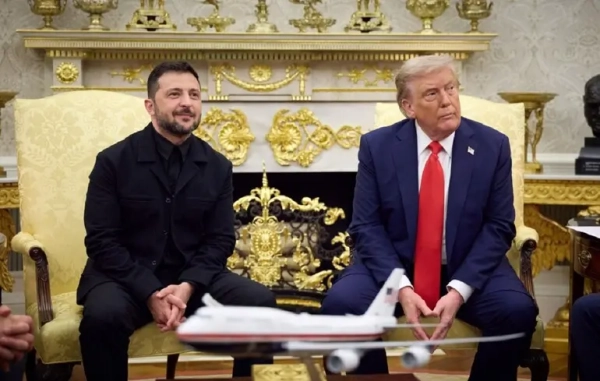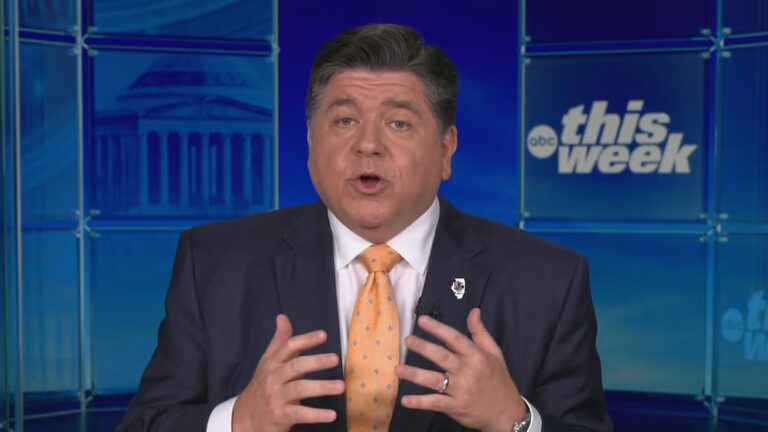Janet Protasiewicz, a liberal-aligned jurist, won the Tuesday election for an open seat on the Wisconsin Supreme Court, according to the Associated Press — flipping the critical swing state's highest court to hand the liberal-aligned judges a 4-3 majority.
The victory by Protasiewicz over former Wisconsin Supreme Court Justice Daniel Kelly follows an unusually expensive and high-profile contest to fill the vacancy left by the retirement of Justice Patience Roggensack. The current court is comprised of four conservative-aligned justices and three liberals, though all seven are officially nonpartisan and not affiliated with a political party.
"Today's results mean two very important and special things," Protasiewicz said as she celebrated her win at her campaign headquarters. "First, it means that Wisconsin voters have made their voices heard. They've chosen to reject partisan extremism in this state. And second, it means our democracy will always prevail."
"Today, I'm proud to stand by the promise I made to every Wisconsinite that I will always deliver justice and bring common sense to our Supreme Court," she continued. "This is a victory for all of us. You have entrusted me with great responsibility, and I will treat the role with the highest degree of integrity."
Tens of millions of dollars were spent by the campaigns and outside groups, arrayed along ideological lines.
In his Tuesday night concession speech, Kelly said the race may have damaged the courts institutionally.
"I wish that in a circumstance like this, I would be able to concede to a worthy opponent. But I do not have a worthy opponent to which I can concede," he said, according to ABC affiliate WISN. "This was the most deeply deceitful, dishonorable despicable campaign I have ever seen run for the courts. It was truly beneath contempt. Now I say this not because we did not prevail. I do not say this because of the rancid slanders that were launched against me. Although that was bad enough. But that is not my concern. My concern is the damage done to the institution of the courts."
MORE: What's potentially at stake in country's most expensive Supreme Court race
Abortion access and gerrymandering were among the top policy issues in the race and helped transform the typically sleepy off-year contest into one of 2023's marquee races.
Those two issues took on particular prominence in the Wisconsin race given that the state's high court is anticipated to take up cases around an 1849 law banning nearly all abortions and GOP-drawn state legislative maps that have helped cement Republican control in Madison since 2010.

A split shows Wisconsin Supreme Court candidates Dan Kelly and Janet Protasiewicz participate in a debate, March 21, 2023, in Madison, Wis.Morry Gash/AP, FILE
Protasiewicz in particular was outspoken on the two issues, saying in her final ad that she "believes in women's freedom to make their own decisions when it comes to abortion" and separately saying that the current legislative maps are "rigged."
Kelly, meanwhile, was not as vocal on the issues, though he worked for the state GOP in private practice after losing his Supreme Court seat in 2020 and is endorsed by major anti-abortion groups.
Kelly went after Protasiewicz during the campaign for discussing issues that could come before the Supreme Court, while Protasiewicz's campaign denied that her personal beliefs were directly indicative of how she'd rule from the bench.
MORE: Wisconsin Supreme Court candidates debate abortion access, gerrymandering
Still, the campaigns left the perception among political observers in the state that a Protasiewicz victory would lead the court to overturn both the abortion ban and the current maps, while a Kelly win would leave both the ban and the legislative lines in place.
"Should the liberals take over the majority, it's clear that the plan is to reverse dozens of rulings made over the past decade or two. Should the conservatives maintain the majority, it's going to be maintained status quo. That's a huge gap in the future of Wisconsin in terms of issues, what the legislature has done, what the court traditionally has done versus new things the court may do," said Wisconsin GOP strategist Brandon Scholz.
Sourse: abcnews.go.com






